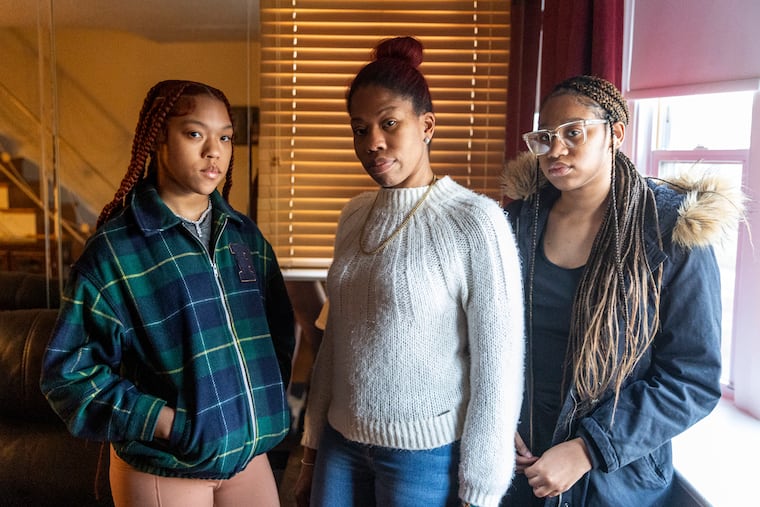A judge decided a Philly charter didn’t expel a girl because it let her attend virtually. Her lawyers disagree.
The decision is “extremely concerning,” according to the Education Law Center, arguing that virtual and in-person school weren’t the same.

A Common Pleas Court judge has sided with a Philadelphia charter school accused of illegally removing a girl from school after an argument with fellow students — deciding she had not actually been expelled because she was allowed to attend virtually.
While the Education Law Center argued that Mathematics, Civics and Sciences Charter School had violated Aniyah Tull’s due-process rights — public schools, including charters, have to follow certain rules when expelling a student — the charter insisted it hadn’t expelled the teen, who got into an argument with fellow students on Dec. 12. Instead, the school said, it offered the 17-year-old the virtual option.
The law center, however, said the charter hadn’t offered the girl virtual schooling until last month, after it contacted the charter to contest her removal. And it said the charter had failed to notify the girl that she faced expulsion before a Dec. 15 hearing.
Five days after that hearing, the charter’s CEO, Veronica Joyner, informed Aniyah’s mother in a letter that the girl “will need to [be] transferred to a different school and is no longer allowed to attend MCSCS as a result of her behavior.”
Judge Anne Marie Coyle, who issued an order on Feb. 13 denying the law center’s motion to return Aniyah in person and dismissing as moot its appeal of the expulsion, agreed that the charter hadn’t followed proper procedures, according to Margie Wakelin, a lawyer at the Education Law Center.
However, the judge found that Aniyah hadn’t suffered “irreparable harm” — a necessary condition for the motion seeking to return her in person — because she was later allowed to attend school virtually, Wakelin said.
“She was excluded from school,” said Lewis Small, a lawyer for the charter, who said that Joyner’s letter “may have been unartfully drawn.” But, he said, “any technical violation” was addressed by the charter’s proposal to allow Aniyah to attend school virtually, which it offered on Jan. 16.
“It’s a commonsense resolution,” Small said, arguing that allowing Aniyah to return to school would have posed a safety risk. (The school says Aniyah made good on a threat to bring her brother to school to start a fight; Aniyah’s family says that she had been referring to an older brother, who lives out of state and never showed up, and that she hadn’t provoked anyone when an argument broke out after school.)
Of the virtual school option, Small said: “How bad is Zooming in? They did it for two years and thought it was great.” He added that “now today you see that it’s not really great.”
Coyle, however, did not appear to see any deficiency in virtual instruction — telling Aniyah that because she had been bullied at school, “‘virtual might be better for you,’” said Wakelin, describing the judge’s comments during a Feb. 9 hearing.
The decision is “extremely concerning,” Wakelin said, arguing that virtual and in-person school weren’t the same. She and Aniyah’s mother, Christina Tull, said Aniyah isn’t getting a full educational experience: She Zooms into her classes, but sometimes teachers forget to let her in, or don’t see questions she asks in the chat.
Aniyah is “getting left by the wayside, I feel like,” Christina Tull said. She said she was “infuriated” that her daughter was being punished, and said her siblings who showed up at the school had sought to defend her against bullying, but hadn’t physically gotten into a fight with anyone.
With the shift to virtual learning during the pandemic, schools in a number of states have directed students to online instruction as a form of punishment. The Education Law Center has informed families that any time a school excludes a child from the school building for more than 10 days, “a parent should argue that this is in fact an expulsion,” warranting protections like a formal expulsion hearing with the ability to be represented by a lawyer and bring witnesses.
The law generally hasn’t caught up to schools’ use of virtual instruction, Wakelin said, though she noted some decisions in lawsuits over masking found immunocompromised students would suffer irreparable harm if they couldn’t safely attend school in person.
Tull and the law center are considering an appeal. The question of whether a school can shift a student to virtual instruction “without any procedures is larger than just this student,” Wakelin said.